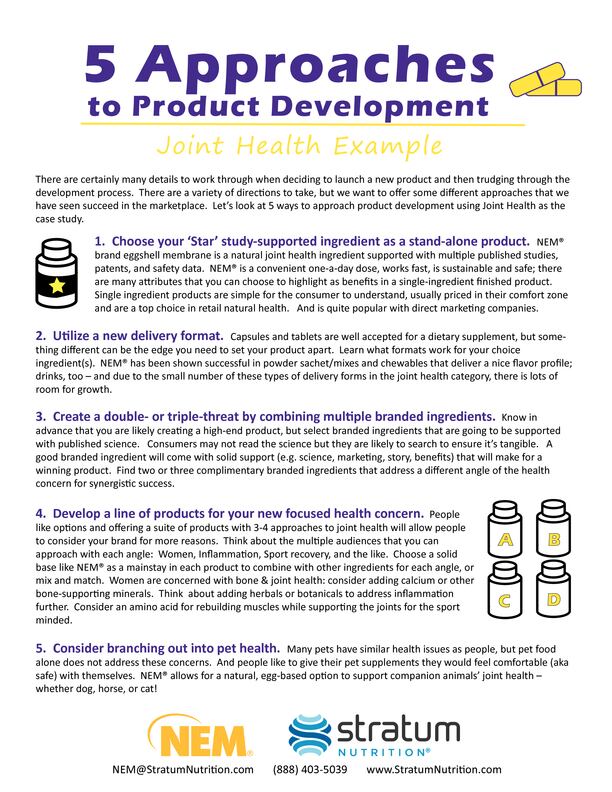There is no question that the food and beverage industry is evolving due to the massive shifts in lifestyle and food choices of consumers globally. From the mindfulness of sustainable and traceable products to trends in shifting away from meat, consumers are reprioritizing their must haves and taking actions on their desires to help reduce the global carbon footprint. However, given all that is happening in the plant-based revolution, it is surprisingly curious that the animal-based omega-3 industry hasn’t seen a similar, widespread consumer demand-driven shift. As more consumers become aware of how they can help support the oceans through making a small change to their dietary supplement regimen, we will most likely see the demand for plant-based omega alternatives disrupt the omega industry.
The Omega Interest
Interest in omega-3s appears to be growing in these extraordinary times when global health is of chief concern. During a Natural Products Insider SupplySide webcast[1], presenter Tracy Landau, founder of marketing agency MarketPlace, said immunity and prevention are currently the top purchase drivers for U.S. supplement users. In 2019, immunity ranked fifth on the list of consumer demands, but updated research following the COVID-19 pandemic, for instance, saw immunity move to third place, after disease prevention/overall wellness and gut/digestive health.
Omegas have traditionally been best known for providing benefits for brain, heart, and eye health. A report from FMCG Gurus[2], which explores how the current global health situation has impacted consumer behavior, identified that, surprisingly, 79% of consumers associate omega-3s with supporting immune function.
According to a report conducted by MarketsandMarkets[3], the omega-3 market is projected to grow at a CAGR of 13.1% to reach USD 8.52 billion by 2025 from 4.07 billion in 2019. Increasing consumer awareness about the health benefits of omega-3 may significantly contribute to the growth of the market.
Demographically speaking, experts like Greg Cumberford, vice president of science and regulatory for Nature’s Crops International, are noticing that younger consumers, notably the youngest Gen Z consumers who are just now becoming adults, are factoring their eco-social concerns into their purchasing decisions. “Ultimately, consumer demand is growing because of the results consumers are seeing and how these are being shared on social media. In addition to real-life health outcomes, people are becoming more concerned about sustainability – connecting the dots between personal and planetary wellness. People are seeking more vegetarian supplement alternatives that retain their complete, balanced and holistic connection to raw natural sources, instead of highly standardized biochemical fractions,” said Cumberford.
In 2020, nearly half (48%) of all consumers factored environmental sustainability in their purchasing choices[4]. Now more than ever, they get the direct connection between planetary and personal well-being. Cumberford continues, “Consumer experience, awareness, and science are combining to strengthen support for plant-based omegas. Trending consumer dietary behaviors (vegan, Mediterranean, paleo, keto, etc.) will continue driving demand for clean-label, fresh, traceable, healthy ingredients like Ahiflower oil.
The Mega Omega
Ahiflower oil contains the richest, most complete and balanced omega fatty acid profile available from a farmed oilseed crop and it is taking the omega-3 segment by storm. As more consumers seek out plant-based alternatives, Ahiflower finds itself at the forefront of the emerging trend as more natural product brands are incorporating it into their product launches.
Derived from elite cultivars of Buglossoides arvensis, a hedgerow plant in the Boraginaceae family that is native to the United Kingdom, Ahiflower oil is different from fish oil in that it is converted in the body into biologically active forms of fatty acids, which are a source of energy in the body and are primary constituents of cell membranes. It contains the only two essential fatty acids: the omega-3, alpha linolenic acid (ALA) and the omega-6, linoleic acid (LA). These two are essential because we must get them from our diet since our bodies do not make them. It is also a rich source of stearidonic acid (SDA), which is converted ultimately to eicosapentaenoic acid (EPA), which is converted to docosahexaenoic acid (DHA) through the omega-3 metabolic pathway. However, gamma linolenic acid (GLA), is not part of that process. GLA converts to DGLA, a very beneficial omega-6 fatty acid. Ahiflower oil is an excellent source of all four of the most critical and beneficial precursor omega-3s and omega-6s - ALA, SDA, LA, and GLA.
Not only does Ahiflower check the plant-based box for consumers, but unlike many omega sources, it also meets the demand for sustainability.
The Sustainability of Ahiflower
Ahiflower crops are farmed regeneratively and traceably, and since it is not a marine-based omega source, its use takes pressure off wild marine forage species that dominate the omega-3 supply chain. It is grown exclusively by a network of independent U.K. farmers under contract with Natures Crops International, which has spent decades developing elite cultivars and horticultural practices that make Ahiflower oil’s quality so unique while giving back more to soil fertility and pollinators than it takes and supporting rural farmland biodiversity.
“With Natures Crops International’s leadership in plant derived omega nutrition, together with Stratum Nutrition, we require nothing less than a completely sustainable oilseed supply chain,” Cumberford said. “Consumers are becoming more aware of the serious problems associated with depletion of ocean ecosystems, and they are therefore seeking plant-based omega alternatives that are sustainable over time and sourced with respect for the planet. For example, each acre of our plant-based Ahiflower oil contains an omega oil equivalent of 320,000 anchovies—currently the dominant global source of omega-3 fish oil.”
Cumberford explains, “Sustainability is a complex subject and often used interchangeably with terms such as traceability, locally sourced, minimally processed, etc., so when we look at sustainability, we try to factor all of these into our supply chain principles and practices, whilst also providing complete transparency ‘from soil to oil’ throughout the supply chain. This is important for consumers to know because it speaks as much about the product as it does about our company and our deep knowledge of every component, activity, and its consequences throughout our supply chains, right back to the UK farmers we work with. We are rapidly transitioning all Ahiflower crop production and processing to regenerative practices. This means giving more back to the soil ecosystem — pollinators, earthworms, beneficial soil microbes — and to rural farmland biodiversity than it takes to grow our crops, following agronomic practices that build soil fertility and structure, add to carbon capture while minimizing added inorganic inputs. Our customers can be completely confident that we are making environmentally sound decisions upstream and downstream in the supply chain.”
For consumers wanting to make a change to their dietary supplement regimen, Ahiflower is the most scientifically validated and clinically proven choice which could have a ripple effect impacting not only consumer health, but also the environment.
------
References:
[1] Natural Products Insider SupplySide webcast. “Consumer Insights for Building a Post-Pandemic Supplement Brand.” Presented June 23, 2020. Accessed at: https://www.naturalproductsinsider.com/webinars/consumer-insights-building-post-pandemic-supplement-brand-webinar
[2] FMCG Gurus report. “COVID-19: Re-evaluating Strategies in an Era of Uncertainty.” Presented June 18, 2020.
[3] Markets and Markets. (2019, December). “Omega-3 Market.” Accessed at: https://www.marketsandmarkets.com/Market-Reports/omega-3-omega-6-227.html
[4] Vitafoods Insight, “Sustainable Supply Chain: Protecting Planet, People, and profits.” October 2020, Vol. 5, Issue 9.








